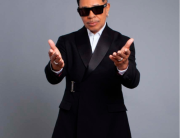Dozo (also Donzo, Bambara for hunter, pl. donzow) are traditional hunters in northern Côte d’Ivoire, southeast Mali, and Burkina Faso, and members of a co-fraternity containing initiated hunters and sons of Dozo, called a Donzo Ton. Not an ethnic group, the Dozo are drawn mostly from Mandé-speaking groups, but are also found among Dyula-speaking communities, Dogon, and most other ethnic groups. Dozo societies increased in the last decades of the twentieth century.
The Donzo Ton (tɔn is a Manding word for age-group, religious, or vocational associations) are one of a number of hunting fraternities common in Mandé-speaking areas of West Africa. Similar, and in the case of West Africa closely related groups, exist as the Kamajor in Sierra Leone, Poro in Liberia, the Mayi-Mayi in Democratic Republic of the Congo, and the Karamojong in Uganda. Sons of Dozos, as well as new adherents, are able to be initiated into the Ton and undergo a series of secret rituals.
It is believed that the amulets (gris-gris) worn by Dozos possess magical properties protecting them from harm, and amplifying their vision and hearing. Such amulets, inherited brown hunting clothing, as well as special hats, are said to make them bulletproof. Each local Donzo Ton is led by an elder hunter, the donzokuntigi. Along with ritual and initiation, local Donzo Ton will meet to discuss their work, organise hunts, or settle internal grievances, often in the all-night tonsigi gathering. In this way, the Donzo Ton operates much like a western guild.
Part of the cultural and ritual tradition of the Donzo involves sacrifice and protection of the community. In traditional belief, wild animals killed by hunters released a nyama, a destructive spirit that afflicted the community benefiting from the kill. Donzo Ton trained to perform rituals, cleansing the nyama and enabling them to both share their bounty with the community of non-hunters, and act as spiritual guardians of settled communities from malevolent forces of the forest and bush.
While there are records of hunter Tons going back to the Mali Empire, since the 1990s there has been a particular growth of local collectives of Donzo Ton in Côte d’Ivoire. It is believed that this growth first originated along the border with Mali, and spread into forested regions of Côte d’Ivoire. In Mali, hunter associations were organised into a national union (l’Association Nationale des Chasseurs). This is seen as the birth of the Benkadi, a network of Donzo Ton. By the year 2000 there were over 22,000 official members.
At the beginning of the 1990s, President Houphouët-Boigny had called on public-minded citizens to aid the police, and as crime increased, local officials drafted in hunters in Korhogo and Ferkessédougou. Not only were the hunter militias successful, but their fame spread far beyond the north. Donzow became a common sight in towns and on the roads. They were hired by locals and both sides in the Ivorian Civil War as soldiers, to guard vehicles, or religious sites.






Add Comment
You must be logged in to post a comment.